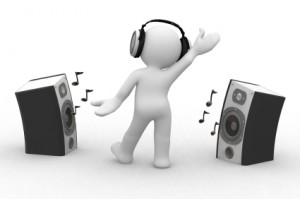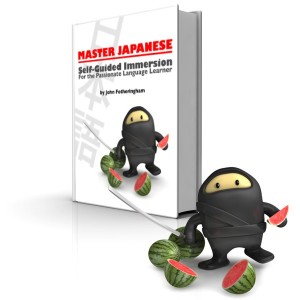A NOT To Do List for Successful Language Learners

Welcome to Foreign Language Mastery! If this is your first time here, please make sure to check the Start Here section once you’re done with this article.
Listen to the Podcast
I went ahead and recorded an audio version of this post for those who want to listen on the go, and for English learners wanting to use it as listening input.
Just click the red arrow…
Audio clip: Adobe Flash Player (version 9 or above) is required to play this audio clip. Download the latest version here. You also need to have JavaScript enabled in your browser.
_
Read the Article
Here is a run down of the top 10 things NOT to do when learning a foreign language. While what works may differ somewhat from person to person, the following should be avoided for ALL language learners:
 One: Do NOT spend more than 5% of your study time on grammar, translation, vocabulary lists or any other overt information about the language. Languages are “acquired,” not learned. And acquisition by its very definition happens subconsciously over time given proper input. Which leads us to number 2.
One: Do NOT spend more than 5% of your study time on grammar, translation, vocabulary lists or any other overt information about the language. Languages are “acquired,” not learned. And acquisition by its very definition happens subconsciously over time given proper input. Which leads us to number 2.

_
Two: Do NOT spend time on materials that are too difficult or don’t interest you. Motivation is one of the greatest keys to success in foreign language learning, and motivation’s favorite fuel is interest. There is a wealth of free language learning content available today; you need simply look for it.
_
 Three: Do NOT study in long, infrequent sessions. Behind motivation, consistency is the most important factor in language learning. If you are strapped for time (and who isn’t?), it is far better to study a little bit everyday than doing marathon study sessions a few times a month. For example, if you only have 2 hours free per week to commit to language studies, it is far better to do 20 minutes per day, 6 days a week than doing the whole 2 hours on one day.
Three: Do NOT study in long, infrequent sessions. Behind motivation, consistency is the most important factor in language learning. If you are strapped for time (and who isn’t?), it is far better to study a little bit everyday than doing marathon study sessions a few times a month. For example, if you only have 2 hours free per week to commit to language studies, it is far better to do 20 minutes per day, 6 days a week than doing the whole 2 hours on one day.
_
 Four: Do NOT worry about speaking too soon. Although oral fluency is certainly the goal of most language learners, it takes the brain some time to assimilate enough input to be able to produce meaningful output. Babies listen actively to the language around them for up to 2 years before uttering a single meaningful word. Adults can get to the output stage much earlier if they follow the advice on Foreign Language Mastery, but they should not force themselves (or let themselves be forced) to speak before they are ready. This is perhaps the single greatest problem with formal language instruction: students are expected to speak long before they are ready, creating a great deal of anxiety and diminishing the student’s motivation and interest.
Four: Do NOT worry about speaking too soon. Although oral fluency is certainly the goal of most language learners, it takes the brain some time to assimilate enough input to be able to produce meaningful output. Babies listen actively to the language around them for up to 2 years before uttering a single meaningful word. Adults can get to the output stage much earlier if they follow the advice on Foreign Language Mastery, but they should not force themselves (or let themselves be forced) to speak before they are ready. This is perhaps the single greatest problem with formal language instruction: students are expected to speak long before they are ready, creating a great deal of anxiety and diminishing the student’s motivation and interest.

_
Five: Do NOT memorize vocabulary out of context. To have any chance of retaining or using new words, they must be heard or read (preferably the former) many, many times within a meaningful situation. “Narrow reading” is a good way to increase the repetition of key words in a meaningful way.
_
 Six: Do NOT try to learn new words, alphabets, ideographic characters or spelling using “rote” memory. We have 5 senses at our disposal: use them! Integrate taste, touch, smell, sound and movement as much as possible. Use “imaginative memory” to visualize connections, stories, objects, etc. The crazier the story, the easier it will be to imprint it in long term memory.
Six: Do NOT try to learn new words, alphabets, ideographic characters or spelling using “rote” memory. We have 5 senses at our disposal: use them! Integrate taste, touch, smell, sound and movement as much as possible. Use “imaginative memory” to visualize connections, stories, objects, etc. The crazier the story, the easier it will be to imprint it in long term memory.
_
 Seven: Do NOT overly rely on the written word. Whenever possible, try to listen to a piece first before reading it. This trains you to rely on your ears first, and better follows the natural order of acquisition (remember: you learned to speak your first language long before you learned to read it!)
Seven: Do NOT overly rely on the written word. Whenever possible, try to listen to a piece first before reading it. This trains you to rely on your ears first, and better follows the natural order of acquisition (remember: you learned to speak your first language long before you learned to read it!)
_
 Eight: Do NOT look up words before making at least one full pass through each reading or listening material (or each section for longer pieces.) Only once you have gone through once or even twice, then go back and look up words you don’t know. When you don’t interrupt the “semantic flow,” it’s easier to get a feel for the big picture. And this prevents us word-nerds from getting lost in unrelated vocabulary and new linguistic connections.
Eight: Do NOT look up words before making at least one full pass through each reading or listening material (or each section for longer pieces.) Only once you have gone through once or even twice, then go back and look up words you don’t know. When you don’t interrupt the “semantic flow,” it’s easier to get a feel for the big picture. And this prevents us word-nerds from getting lost in unrelated vocabulary and new linguistic connections.
_
 Nine: Do NOT let the “affective filter” put a damper on your language learning. The affective filter is a fancy word for a simple and intuitive concept: your emotions and psychological state significantly affect your performance in a foreign language (or any skill-based act for that matter.) If you are nervous, angry, hungry, tired, or preoccupied with the fight you had last night with your significant other, your ability to speak well in a foreign language will go down faster than the current stock market. On the other hand, I am sure you have noticed that a few brewskies can significantly improve your ability to converse in a foreign tongue. Why? Because booze (like meditation, exercise, and experience) helps lower inhibitions and boost social skills like verbal communication. If your teacher makes you feel nervous or stupid, fire their ass. If your language partner does not see the logic in your incorrect, but nevertheless intelligent errors, replace them. You will never make any real progress if you are afraid to speak and are not free to make all the wonderfully logical—albeit incorrect—utterances that define both infant and adult language acquisition.
Nine: Do NOT let the “affective filter” put a damper on your language learning. The affective filter is a fancy word for a simple and intuitive concept: your emotions and psychological state significantly affect your performance in a foreign language (or any skill-based act for that matter.) If you are nervous, angry, hungry, tired, or preoccupied with the fight you had last night with your significant other, your ability to speak well in a foreign language will go down faster than the current stock market. On the other hand, I am sure you have noticed that a few brewskies can significantly improve your ability to converse in a foreign tongue. Why? Because booze (like meditation, exercise, and experience) helps lower inhibitions and boost social skills like verbal communication. If your teacher makes you feel nervous or stupid, fire their ass. If your language partner does not see the logic in your incorrect, but nevertheless intelligent errors, replace them. You will never make any real progress if you are afraid to speak and are not free to make all the wonderfully logical—albeit incorrect—utterances that define both infant and adult language acquisition.

_
Ten: Do NOT forget to have some fun! Language learning takes time, but it needn’t be difficult. If you follow the tips listed above and throughout Foreign Language Mastery, and approach language learning with a smile instead of a grimace, you too WILL succeed!
_
Presentation Version
And last but not least, here is a Keynote version I created for sharing on SlideShare.net. Feel free to share, embed and download the presentation as you like.
Republishing This Article
Want to share this on your site or blog? You are welcome to republish any articles by John Fotheringham. For guest posts, you must seek permission from the post author. For John's articles, please include the following at the top and bottom of the article when reposting:
Copyright © 2010 by John Fotheringham. For more tips, tools, and tech for Mastering ANY Language, go to LanguageMastery.com



This is an excellent list that I will put into full use when reorganizing the English classes at my school.
My short responses to the list:
1. Even 5% of time spent on grammar study is going to be way too much. I would say make it 0%.
2. I agree with the point about not spending time on materials that don't interest you, and if that is the reasoning behind the point about not using material that is too difficult then I can understand why difficulty was included. However, as long as you are interested, the difficulty does not matter.
3. Infrequent – No. Frequent – Yes. Long Frequent sessions are best.
4. agree. Do not speak. Do not force yourself to speak.
5. agree. But why do you qualify the statement and add "out of context?" Just say, do not try memorize words period.
6. no comment
7. ok
8. I'd add, if you do not have to know the meaning of the word (like you do for work or life situations) then do not look it up even after several passes through your material.
9. If you are making mistakes then you are not ready to speak. There is no reason to be making mistakes.
10. What could be more fun that the TV method?
ugh. please don't teach a language, keith.
Thanks for posting Keith. I watched your Japanese conversation with Steve. 二人の外国人が日本語でしゃべるのは、ちょっと変な感じするんだけど、良かったと思う。何年間日本に住んでいる?
I think we basically agree on the issues; we're just on slightly different positions on the language learning spectrum. Nobody has all the anwers, I really enjoy hearing different points of view. That is what makes Steve Kaufmann's blog so great (which is where you found me I assume…)
So with regard to your response, I personally agree that little or even NO grammar study is good, but I say "5%" as a way of pulling people over from the "Dark Side" where they spend ALL their time studying grammar. Like Kaufmann, I do occasionally glance at grammars quickly, but I do this out of interest (my academic background is in linguistics), but not because I think it will do much for my fluency or accuracy in a language.
While I do firmly believe in the need for a silent period (3 months to 2 years depending on your exposure to the language, motivation, attitude, etc.), if you wait until you don't make mistakes, you will NEVER start speaking. I still make "mistakes" in English from time to time (i.e. accidentally writing "their" instead of "there.)
I agree that TV rocks for language learning. In fact, I will be adding a link to your blog on the site soon. Also, would you be interested in doing any guest posts on site? My readers would benefit from hearing more about the TV method.
This is not the answer of your comment above.
I ve just finished korean translation of this article on my blog.
See you again.
Thank you for taking the time to translate this list into Korean. Here is a link to the translation for those of you who are learning Korean or native speakers of Korean who want to confirm their understanding of the English version: http://kr.blog.yahoo.com/[email protected]/19
> I still make "mistakes" in English from time to time (i.e. accidentally writing "their" instead of "there.)
Everybody makes typos, such as the missing quote mark after "there" above. I certainly do!
However, as with learning anything, it is understanding which is essential. It becomes harder when abbreviations (and other jargon) are used, but "i.e." means "id est" in Latin, whereas "e.g." (and I had to look up that it means "exempli gratia", that is to say "for [the sake of] example") is the abbr. you were looking for. Again, by no means a criticism, we all make mistakes, and it is harder to edit the entirety of one's own writing without the benefit of an editor than to risk being wrong in a foreign language where the conversation partners are prepared to accept non-native errors.
Reminds me of the time I tried to order "olivas" instead of "aceitunas" in Basque country. The grand-daughter of the proprietors explained that they were a bit confused as to why I was asking for some olive trees with my glass of wine.
Good catch, Dylan. And good points, too. Communication trumps perfection.
I agree that there are differences between adult and infant language acquisition. The first difference is that ALL children acquire their first language while very few adults do. This is a strange phenomenon considering that adults actually have many advantages over babies:
1) The ability to read. This allows for a second channel of input, the ability to confirm the meaning of what one has listened to, and to systematize the acquisition of vocabulary. This is the basis for such sites as LingQ. You can see my review here:
http://www.slideshare.net/L2mastery/language-lear...
I agree with some of what you say, but we're not babies! We cannot learn like young children. Trying to replicate the conditions under which kids acquire their first language is futile. Why should we stigmatize traditional methods that work at least for some adults?
Sorry, that link should have been:
http://www.slideshare.net/L2mastery/language-lear...
Hello John. I didn't receive notification about your reply 1 week ago. But I did receive notifications about your replies (2) today, but not one for Sergio's comment.
Theoretically, one should be able to speak without making any mistakes. Mistakes happen when you try to say something that you don't know how to say so you forge into new territory and start making things up that you think will get your point across. It may not be practical to avoid that situation but I don't see that it couldn't be avoided.
For the purpose of my debate, I guess I would consider a mistake to be something that was said while having no clue that it was wrong. Basically that happens when you make up grammar or expressions. And then, it's probably only a bad thing when you remember how you said it (which was wrong) and then keep using it.
If you have students or friends, you can see that. You correct something they said that was wrong, but they are so used to saying it that way or thinking that way that they will repeat the same mistake immediately.
So my only purpose for wanting to avoid mistakes is to avoid unnecessary problems.
How should one learn Chinese characters if one does not have a good imagination?
I've been having some issues with IntenseDebate (my WordPress comments plug-in.) It has a lot of potential, but has been a little buggy so far. Hopefully you receive future upodates…
I understand your position on mistakes and am on the same side of the linguistic spectrum, but I do think that mistakes are inevitable (and even helpful) in the early stages of speaking a language. By "early" I mean when you begin speaking after a sufficient silent period. It is important to draw a distinction, however, between "mistakes" and "errors." The former are slips of the tongue or one-time screw ups that are not fossilized into memory. Errors are what you described: repeatadly making mistakes and not being aware of it. As you said, it is probably possible to avoid both, but practically speaking, one should just focus on avoiding errors by waiting to speak until they have received sufficient input, and getting feedback on their output from a tutor.
Everyone has a good imagination (or at least the potential to think abstractly.) It is a skill that can be practiced and improved over time. This is one reason why reading tends to be better for thinking than TV; it forces YOU to picture the story line, characters, etc. Don't get me wrong; TV has its place in learning. But like with all things, variety is the key.
And speaking of TV, I'd love to have you do a guest post on the TV method. Interested?
I had a feeling that you probably differentiated between mistakes and errors. But it's a mistake to think that way! Or should I say it's an error to think that way? Hmm. I think it would be a good topic to discuss. You should consider putting those words in your Linguistionary.
Thank you for the invite to guest post. I'm flattered. I will consider your offer in the future when the appropriate time comes.
Good idea; I'll add them to the Linguistionary soon. Just let me know when you want to do a post and I'll add it to the "featured articles" section.
I agree it. Language learning can only really happen if you are motivated and find it fun.
For my a mixture of both combine amazingly well with the enriched culture that China has, allowing me to explore the language and culture together.
Hi Charlie. I like what you are doing with Discover Mandarin. Keep up the good work!
Hi John, thanks for your kind comments.
Discovering Mandarin is a work in progress and may well be moving over to my own hosting very soon.
Watch thi space. In the mean time keep this site going. It is a great resource.
In the mean time keep this site going. It is a great resource.
Charlie
Different people have different learning methods. I have done a few of the things you said not to do that have worked really well for me. I can't learn just by watching TV. I need to study vocabulary and grammar in short sessions everyday. For me, this helps tremendously. For others it may not work so well.
I don't think there is anything wrong with studying vocabulary and grammar in moderation as long as it doesn't take the place of input activities. I made this list because most people spend far too much learning academic information "about" the language instead of actually "learning" the language through extensive listening and reading.
And to be clear, I don't advocate "just watching TV" or "just listening to an iPod". You need to back up your listening activities with reading (which is why I prefer materials that include scripts). This helps transform mere "input" into actual "intake".
This is absolutely brilliant. Current language instruction in high schools and many colleges is apparently designed to create people who cannot ever speak or be comfortable in a foreign language. The Israelis and Norwegians have known this stuff for many years.
I agree, forget the grammar – just focus on getting out there and actually talk to people!
Here here! Though I suggest that people get enough input before they start focusing on output. You have to fill up your tea pot before you can serve any tea.
Ignoring grammar will leave you branded as a tourist ..for ever!
I think a more accurate statement would be, “Never learning the local language will leave you branded a tourist forever.”
But as I argue in the article above, focusing too much on explicit information about the language (e.g. studying grammar rules) will not get you to the point where you can understand and communicate easily. Grammar study is a type of “declarative memory” (like knowing how many feet you are allowed to park from a fire hydrant), while the ability to speak is a type of “procedural memory” (like knowing how to drive a car). Most language learners spend too much time (or nearly ALL their time) focusing on the declarative type activities (memorizing grammar rules, looking at vocabulary lists, etc.) and thus never reach even a modicum of fluency in a foreign language.
All this said, I do think it is just fine to briefly review a grammar book once in a while, but only if you are ALSO spending the majority of your time on input based activities (listening and reading).
Thank you for the feedback, Pablo. I will get to work on a To-Do list soon.
[...] learners. While most fluent foreign language speakers tend to agree on the vast majority of language learning DOs and DON’Ts, there is one area that always seems to cause heated debate, shouting, name calling, and occasional [...]
[...] learners. While most fluent foreign language speakers tend to agree on the vast majority of language learning DOs and DON’Ts, there is one area that always seems to cause heated debate, shouting, name calling, and occasional [...]
Nice list. I am one of the people who finds that knowing the grammar rules in advance helps me to disect sentences when I hear them 'live'. To me it's like the phenomenon of learning a new English word, and then hearing it everywhere for the next week.
Anyway, as always with language learning – Do whatever works for you.
Thank you for your feedback, Steve! And hats off for a great blog!
My effort with this article is not to get people avoiding grammar study 100%, just to help get folks focused on the primary tasks of language acquisition and mastery: listening, speaking, reading and writing.
I do believe that some light grammar study can be helpful, which is why I use the 5% rules instead of zero percent as some language bloggers suggest. But as you point out, it always comes down to "whatever works for you."
If someone is already learning languages successfully, then they can ignore this and other language blogs and just continue doing what they do. But as I have seen in my language classes and seminars, the vast majority of learners have tried and failed and are desperate to find a better way. I hope this list helps point them in the right (or at least a less-terrible) direction…
[...] A NOT To Do List for Successful Language Learners 1 l2mastery.com — Here is a run down of the top 10 things NOT to do when learning a foreign language. While what works may differ somewhat from person to person, the following should be avoided for ALL language learners: [...]
"Do NOT worry about speaking too soon." I absolutely disagree. A lot of my fellow learners are decent at the mechanics of Japanese, but when we try to have a conversation or when they actually go to Japanese they stutter all over themselves because they have no working experiences to utilize everything they've learned.
One of my tutors makes her students create videos of them speaking in Japanese based of simple prompts,using the vocabulary they've learned. They make many mistakes and sound a bit robotic, at first, but it's obvious that this is the key to a useable language center.
Speak early, speak often.
"A lot of my fellow learners are decent at the mechanics of Japanese, but when we try to have a conversation or when they actually go to Japanese they stutter all over themselves because they have no working experiences to utilize everything they've learned."
I hear this a lot. When someone says they understand the "mechanics" but cannot understand or use a language, it just confirms my oft-used statement that most learners spend far too much time learning ABOUT the language but never actually ACQUIRING the language. They are very different things.
In my experience (as both a learner of Japanese and a teacher of English in Japan, Taiwan, and the US) most learners have trouble speaking not just because they haven't spoken enough, but ALSO because they haven't received enough exposure to the spoken language.
Speaking IS of course the goal of language learning, and you DO need to speak a lot ONCE YOU ARE READY, but having to speak from day one, before one has any chance of performing well, just leads to anxiety and fossilized pronunciation for most learners.
But there are two caveats to this position: 1) If you WANT to start speaking right away, go for it. Interest trumps all. 2) If you live where the language is spoken, you will of course need to start speaking right away to get around. But in either case, it is still essential to get as much listening input as possible
FYI, Vera Ihrig was kind enough to translate this article into German. You can read the translated version here: http://lingqvera.posterous.com/eine-liste-was-man...
And here is the Korean version, too! Thanks 안희동 for the translation!
That's 3 languages down, a few thousand to go…
http://su.pr/22jpmt
6th December 2010
Dear John,
Thank you for compiling this list and posting it free of charge. I heartily agree with 9 of your suggestions, but agree with "ryanthewired" that Four: 'Do NOT worry about speaking too soon' is incorrect.
I am an experienced language teacher (mostly with adult ESL students ), and my observation is that students must overcome their anxiety about speaking as early as possible, or they will never do the huge amount of speaking that is necessary to build up fluency. The analogy with babies is an interesting one, which many theorists have explored, usually to the detriment of adult learners. I learnt to speak fluent Spanish from zero in my early 30s, far past the age that the theory would say this is impossible. Therefore I distrust the theory! [I have never been to a Spanish-speaking country, either, although I did converse with native speakers frequently.]
Another personal experience of mine has influenced my opinion of language learning: my perfectly average son experienced a severe head injury a month before his 9th birthday. He lost all of his physical and mental faculties, including language, and had to re-learn them, like a baby. He did so, but much faster than a baby, and he made, and still makes, language errors of the type that second language learners do. His language ability is now within the normal range for his 16 years (although his academic ability is greatly reduced and he can't compete with his peers in this area).
My experience with my son's brain injury led me to accumulate a lot of knowledge about brain research, which is making extraordinary leaps in the 21st Century. At the same time, emergency and intensive care medicine, along with rehabilitation techniques, is making great strides also. At about the time my son had his accident [Feb 2003], many practitioners still believed that brain cells could not regenerate, and indeed my son astonished one ICU doctor by his amazing recovery; this fellow had wanted to disconnect my boy from life support since he was convinced he had no hope. (Naturally I was not in agreement!!)
Many people are now surviving head injuries which were once considered unsurvivable, and recovering most of the language facility they had before (albeit with a great deal of assistance).
[By the way, I believe that physical therapy had as much to do with my son's mental recovery as did speech therapy: I was amazed that the physio began as soon as my son was brought out of the induced coma, but in retrospect I believe this was key.]
Much is being learned about learning and the other amazing capacities of the brain from these brain injury survivors. [Forgive another tangent: I realised in the hospital that the CAUSE of the injury is largely irrelevant, whether it is from a stroke or a blow to the head, of course excluding diseases or injuries which cause the wholesale destruction of large areas of brain tissue, such as Alzheimer's. I saw children with different causes in the same ward recovering just as my son was, and it helped me realise there was no-one to blame, and that blaming anyone wouldn't help.]
Back to your very good suggestions! I especially agree that motivation is fundamental to success in language learning, and for this and other reasons I don't believe in compulsory second language lessons for secondary students. From my own (SOMEtimes successful !) studies in French, Italian, Modern Greek, Dutch, and Spanish, I know how very difficult it is to acquire a second language, and I would not have persevered without intense motivation.
Re number 10 I also try to make my lessons as entertaining as possible, while maintaining a high work rate, which is also essential.
Perhaps number 11 on your list could be: Don't think you can acquire a language from attending one lesson a week for six weeks!! Alas, many language schools give such an impression to their students. I don't scare my students by telling them how dauntingly huge is the mountain they have to climb (!) but neither do I deceive them by pretending that they don't have to work hard. (Extremely hard!) ;D
From "Melba", in Melbourne, Australia.
Melba,
Thank you for your kind and candid feedback. I am very sorry to hear about your son's head injury but am truly inspired by both your amazing attitude and his impressive recovery. The human brain is such an wonderfully complex and intriguing machine that we are only now beginning to understand at the most basic level. I am excited to see how far neurologists, cognitive linguists, and psychologists can take our understanding of the human brain, and how it learns, forgets, re-learns, processes, and produces language over the coming years.
Number 4 on the list has indeed proved controversial, and the "silent period" concept continues to generate quite a bit of debate among language learners, bloggers, and even linguistic researchers. As I interview more and more successful language learners for my upcoming "Master Japanese" guide, my position on the "speak when you are ready" concept has definitely changed somewhat. While being "forced" to speak too soon can indeed lead to anxiety, learners should not let fear of speaking prevent them from getting the requisite practice they need, either. As I point out in my article "The Input vs. Output Debate: John’s 2¢" <a href="http://(http://l2mastery.com/featured-articles/johns-position-on-the-input-vs-output-debate),” target=”_blank”>(http://l2mastery.com/featured-articles/johns-position-on-the-input-vs-output-debate), the key is balance and order. But as Benny the Irish Polyglot accurately points out, many learners will use the "I will speak when I am ready" excuse indefinitely, never getting the requisite speaking practice they need to reach oral fluency.
Also, I think it is important to point out that the "silent period" and the "critical period" hypotheses are very different things, and I am definitely NOT a proponent of the latter. Saying that "only children can learn languages" is obviously not true as you, I, and countless other successful adult language learners have discovered. But there are indeed interesting differences between learning one's first language as an infant and learning second languages (or re-learning a first language as your son unfortunately had to experience) in one's teen or adult years. Infants automatically learn the language around them, but the process takes much longer. Adult learners don't automatically learn languages around them, but if properly motivated, will do so, as you point out, at a much faster pace and to a more advanced level (despite still making some mistakes).
I completely agree with you that foreign languages should not be compulsory, as this leads many students to hate language learning and believe that they are not good at it. In reality, they just hate learning languages the way they are typically taught, and are just proving that the method they use (the brain inside their heads) is to blame. Also, I have found that making something "required" tends to remove (or at least neuter) many of the motivational strategies available to the self-guided, motivated adult learner.
"Don't think you can acquire a language from attending one lesson a week for six weeks."
Absolutely. Adults often underestimate the hours it will take to learn a language, but they also OVERestimate the number of months or years the process will take. If you are motivated enough, you will find the time each to use whatever free time you have toward the task. Even a very busy person can spend a total of 2 to 4 hours a day (broken up into 5 minutes here, 20 minutes there). Those hours will add up quickly, and in a few short months you can reach a pretty impressive level of fluency even while still living in one's native land, going to work, raising kids, and living one's life.
I really enjoyed your comment and look forward to an ongoing discussion on this and future posts.
I agree with number 2. Motivation is key. It's important to find interesting ways to learn that will keep it fun for you.
Absolutely. In fact, I think if you are truly motivated and enjoy learning, you can get by with otherwise crummy methods and materials. But for most people, I think having great materials and effective methods makes it that much easier to build and sustain motivation.